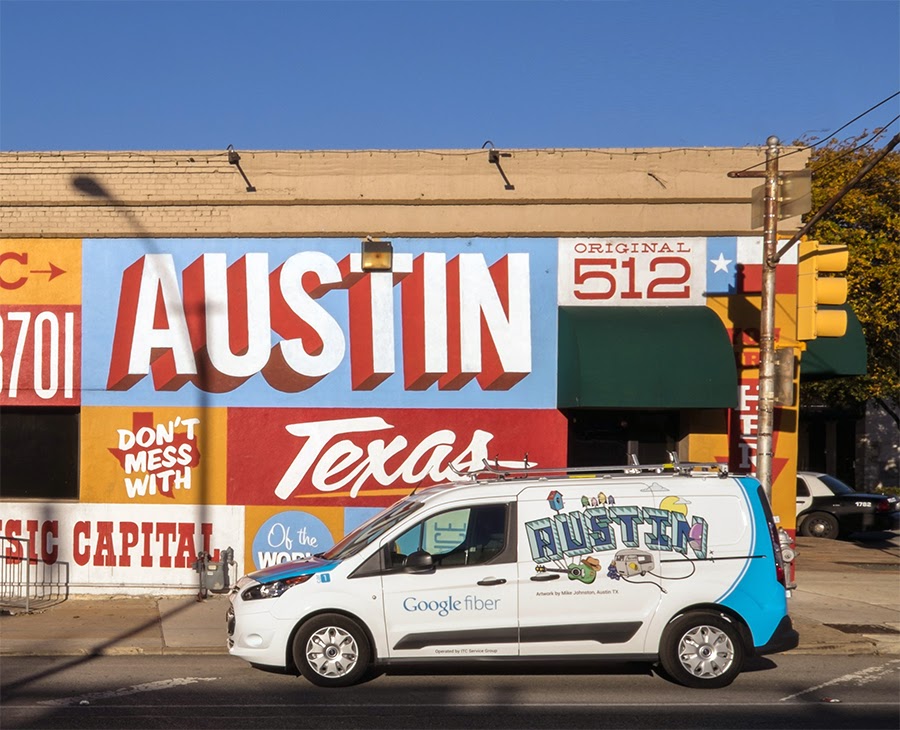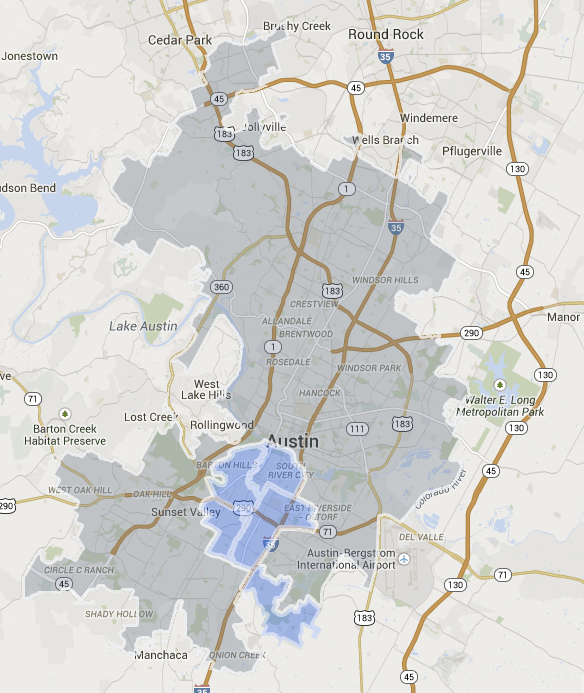Sign-Ups For Google Fiber Begin In Austin
Some residents in Austin, Texas will finally have the chance to sign up for Google Fiber. The company announced today that the south and southeast regions of the city can choose from three different plans.
For $70 a month, residents will have download and upload speeds up to 1 Gbps as well as 1 TB of cloud storage across Google Drive, Gmail, and Google+ photos. If people are willing to dish out $130 per month, the package offers a TV plan with over 150 channels, along with HD channels and the ability to record up to eight shows simultaneously.
Both plans also include a waived $300 construction fee with a one-year commitment. For those who don't want to pay for either plan, Google also offers free Internet service. However, the speed is severely limited to only 5 Mbps download and 1 Mbps upload speeds, and users would still have to pay the $300 construction fee.
Google Fiber is also available to small business owners in approved areas for $100 a month. The package includes the same super-fast Internet speed and waived construction fee. There is also an option to add one static IP or five static IPs for $20 a month or $30 a month, respectively.
Each of the five eligible regions have different deadlines to sign up for Google Fiber. For example, the region of Bluebonnet has the earliest deadline of January 19, 2015. A closer look at Bluebonnet shows that it is split into smaller portions. Each portion needs a certain number of sign-ups in order for its area to get Google Fiber.
At the time of this writing, nine of the 31 areas in Bluebonnet have already met their sign-up goals. On the other hand, the region of Onion Creek has until July 16 to sign up for Google Fiber, and at the moment, none of its 28 areas have met the sign-up goal.
Getting to the point of actually signing up for Google Fiber has been a long wait. The announcement of Fiber arriving in Austin was made in April 2013, but the physical construction of the network didn't start until September 2014. Additionally, the Google Fiber for Small Business plan only started last month in Kansas City, Kansas and Missouri.
Get Tom's Hardware's best news and in-depth reviews, straight to your inbox.
As for the other Google Fiber cities, Kansas City and Provo, Utah, people there might have to wait a little longer. Sign-ups for two counties in Kansas City are expected to open sometime in 2015, and construction of the network is still ongoing in Provo. Still, that doesn't stop Google from looking ahead to other potential cities such as San Jose, California, Portland, Oregon, and Atlanta, Georgia.
Follow us @tomshardware, on Facebook and on Google+.
Seth Colaner previously served as News Director at Tom's Hardware. He covered technology news, focusing on keyboards, virtual reality, and wearables.
-
poxenium Move to Romania! We have 1000Mbps, 500Mbps and 1000Mbps from the top three national internet providers (Telekom, UPC and RCS-RDS) since the beginning of 2014. Prices are between 10 and 20 USD (including VAT). ;)Reply -
kep55 Something about telecomm I don't understand is this. If the signals are electrical impulse, and electricity travels at near light speed, why is the internet so slow?Reply -
Be0wulf22 Kep55, Has to do with the length of the signal. Yes, they travel at the speed of light, but if I want to send 1 bit of information and the signal starts now, lasts for 1 second, then ends, the start of the signal may have reached you at the speed of light but you had to wait 1 second to get to the end of the signal. This of course ignores all other network factors such as the additional routers it would need to go through.Reply -
Be0wulf22 Kep55, Has to do with the length of the signal. Yes, they travel at the speed of light, but if I want to send 1 bit of information and the signal starts now, lasts for 1 second, then ends, the start of the signal may have reached you at the speed of light but you had to wait 1 second to get to the end of the signal. This of course ignores all other network factors such as the additional routers it would need to go through.Reply


